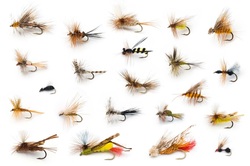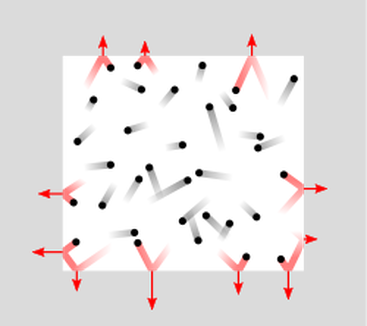|
This is one of the pieces from my sabbatical, an intentional period of time that I took to reflect and write about experiences of providing and receiving care in my personal life and professional life.  Caregiving. What does that mean? I mean really – what does it mean? I give care? Like a present on a birthday. Here you go, open it – it's “care.” I care. No need to say what I care about. It may not even be you. I care. In other words, I no longer say I don't care. A friend of mine was told that she doesn't care by her 10 year old son. What? What do you mean I don't care. Well, mom – you always say - “go ahead, I don't care.” What? Of course I care, she said. But his reasoning was sound. She did often say she did not care. Can I go to the neighbor's to play? I don't care. What do you want for dinner? I don't care. Mom, can I bring this to school? I don't care. What should I have for snack? I don't care. Coke or Pepsi? I don't care. And yet here is a gift, wrapped for you in colorful pastels. There is no bow however. - I couldn't find a bow. And no need for a card because I didn't think you would care. Go ahead – open it. And as I smile watching you you rip at the colors to find a box of “care.” Thank you. You care. Yes, I do. No, it is not that.  Caregiving. What does that mean? I mean really – what does it mean? I give care? I give care, offering it up like I do with my weekly offering in church. The plate is passed and I reach into my wallet, leafing through to find that there is indeed cash in a cashless society. I count out an appropriate amount and fold it as to hide my amount of giving. When the plate is passed, I overt my eyes to the usher but smile nonetheless when I give my care, grasping the plate and pass it to my left, again averting my eyes yet smiling. I look down at my knees and then come back to reality the piano is playing a haunting tune. Why haunting? Why play something haunting while we are giving our cares? Unless the music is taking them away. I cast all my cares upon you. I lay all of my burdens down at your feet. And anytime I don't know what to do, I will cast all my cares upon you. Caregiving, carecasting... Ah... it means casting care like a fly fisherman. A long line with colorful plastic feathers at one end, attached to a hook. Switch, switch, switch – the line floats over head and with the flick of my wrist, I cast – switch. The feathery hook barely touches the water – luring the fish to the service with one question, “What was that?” Looks like lunch. Casting care. Care giving. A rhythmic flow of the thin, barely noticeable line moving to and fro – arching and falling like a giant bubble, like the ones we hope to create while playing outside with our children. Blowing bubbles, casting lines, casting care, caregiving.  Small blue plastic container labeled “bubble magic.” complete with a tiny plastic magnifying glass looking tool. Lift it out to discover it is not made of glass at all. - it is filled with soap. Soap that when blown through will make bubbles. Lots of tiny bubbles. Sometimes streams of them. Sometimes one big large one – if blown with patience and intention. Stream of constant air pressure, the same pressure, the right pressure – don't stop, if you do it will pop. The bubble is growing and growing and growing and then it pops. Dip again, try again. Bubbles, lots of tiny bubbles. All around, go collect them, catch them. Watch them wash your arms and legs, one round spot at a time. Giggles, playing, life is good. When someone cares enough to blow bubbles for us to catch. I care. I give care. Yes, I give to another. But my motivation is still mine. I cast care like a feathery hook, I try to make right with the same patient intention with which I attempt big bubbles. Slowly, slowly, with consistent pressure. Until it pops. It always pops. Dip again, try again. Cast again – lure the fish to the surface with your feathery hook. Caring – for my own want for fixing. If I cast right, If I make the big bubble, then my care will work its way to a better life for me as well as the recipient of the gift of care. It is not a present just for you.
0 Comments
 Pressure as exerted by particle collisions inside a closed container. It's 9pm. Pete cut his ankle. We're not sure where or how. But he asked if I could come investigate when he noticed blood on the kitchen floor. He scraped off a chunk of flesh from his right ankle. His sock was saturated with blood. “You didn't feel this?” I asked. “No,” he said. I've been concerned about his feet since he's been in a wheelchair. They're often puffy, filled with fluid... and a bluish color. That can't be good. His right leg is weaker than his left, although both legs at this point are weak. He's lost a lot of dexterity in his fingers too. And while I'm listing things – his balance and core muscles have taken a hit this last year. Help. Yesterday's help was about cleaning up blood from an ankle. And then cleaning it up from the rug. And then cleaning it again from the ankle because it wouldn't stop bleeding. And then cleaning the rug again. Cleaning the leg rests on the wheelchair – ew. Yes, ew. Gross. But the thing that got me was having to clean the ankle again. He can do this. Once we found where the wound was, he could take care of it. He can left his leg, he can clean it. He can elevate it. He can take care of himself. I'm fine scrubbing the rug. I get that he's not going to be able to get on his hands and knees and scrub a rug. But taking care of his own ankle. Yes, he could. And yet he relied on me or I enabled him to rely on me for 30 minutes before I came to my senses. Wait a minute... you can do this. Why am I doing this? Why am I helping? Why do you need my help for this? There I stood in the middle of our gigantic handicap accessible bathroom sticking up for myself and my time and my energy. Like an attorney, I argued on behalf of the spouse who is being taken over by the caregiver. “Which do you want?” I asked, “A spouse or caregiver.” Both. The answer is both. Now it's 5:44 in the morning. I hear the beep of his electric wheelchair come on, “budup.” First I hear him grunt a tiny grunt as he swings his legs out of bed, hoping that the momentum will position him upright. Then I hear another grunt or two as he transfers from bed to chair. Then, “budup” and he's off. The wheels of the chair on the rug sound like Gumby. Remember Gumby? “Shoop, shoop” only this is more like a constant, “shooooo... until he stops, oop.” I'll wait without worry for about five minutes. Then I'll wonder why I don't hear anything. I'll give it another five and then if still there is no sound, I will say, “You ok?” Usually that is followed by “Yup.” Usually means 90% of the time. But 10% - yes, it's only 10% - but my Lord, it's 10% of the time, the answer is, “No, I could use some help.” The wound was open. Clean the wound. Clean the floor. Neosporin. Bandaids. This time there were no questions about whether he wanted a caregiver or a spouse. The answer is both. I am a spouse/caregiver. The hardest task is both balancing those roles and parsing which is which. When Pete cut his ankle, it was 9pm. We had a finished a full week of work and play together. A big party, an early morning with our granddaughter, a movie and a meeting with a builder. He's exhausted. It's possible that I am too. When he needed help again at 5:44, I helped because he's bleeding and tired and dripping blood on our floors! I step in because he needs to get back to bed so that he can get up for church tomorrow . That's where our friends are, where his support system is. It is the place where everyone knows his name. It's where others receive his love and return in kind. Some weeks when he misses church, I am the only human contact he has. It's 8:30am the next day and he's too tired to go to church. |
What is this blog about?These are some of the reflections that I am fashioning into a memoir about coming to peace with my husband's diagnosis of multiple sclerosis.
|



